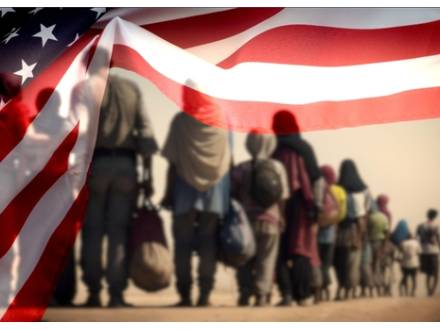Programs for Inadmissible and Ineligible Immigrants
 Immigration issues have always been complex and are likely to become much more complex in the coming months and years. Some foreign nationals may be deemed inadmissible and ineligible to receive a visa that would allow them to enter the U.S. In other cases, a person may already be present in the United States and, if found inadmissible, may be subject to deportation/removal proceedings.
Immigration issues have always been complex and are likely to become much more complex in the coming months and years. Some foreign nationals may be deemed inadmissible and ineligible to receive a visa that would allow them to enter the U.S. In other cases, a person may already be present in the United States and, if found inadmissible, may be subject to deportation/removal proceedings.
There are some options that may be available for a person who is inadmissible or ineligible. This is a very complex area of immigration law, and a single error in paperwork can have severe consequences. It is always a good idea to have an experienced Bloomingdale, IL immigration attorney who can assess your situation and determine the best options.
What Are Some Options for Ineligible or Inadmissible Immigrants?
Your specific situation will determine which option your immigration attorney chooses for you. Some of these options include:
Asylum
Asylum is for a person who is already in the United States and can demonstrate that he or she either had a fear of persecution or was persecuted in his or her home country due to nationality, race, religion, social group, or political opinion. You can file for asylum using Form I-589 within one year of arrival in the U.S.
U Visas
U visas are used by victims of certain crimes who have suffered mental or physical abuse and have helped law enforcement or government officials investigate or prosecute criminal activity. The U Visa was created simultaneously with the Victims of Trafficking and Violence Protection Act in 2000.
VAWA Petitions
VAWA petitions are self-petitions for noncitizens who have been abused by a U.S. citizen or lawful permanent resident. Because of the nature of abuse, VAWA self-petitions can be filed without the abuser’s consent, participation, or knowledge, allowing a victim of abuse to be safe from his or her abuser.
LIFE Act
The LIFE Act (Legal Immigration and Family Equity) significantly changed immigration laws in the United States from the time it was enacted in 2000. The changes made it easier for families to remain together during the immigration process while enabling some who would otherwise be ineligible to live and work in the U.S. The LIFE Act allows some immigrants in the U.S. to apply for an adjustment of status despite factors that would have blocked them from doing so.
NACARA
NACARA 203 (Nicaraguan Adjustment and Central American Relief Act) allows those who are Guatemalans or Salvadorans who meet certain criteria and have not been convicted of a felony to live and work in the United States, assuming all other mandates are properly met.
DACA
DACA (Deferred Action for Childhood Arrivals) is for immigrant youths who were brought to the United States as a child and remain undocumented. Many of these youths are now in their 20s and 30s, and while most so-called "Dreamers" are Latino, they are a diverse group. Three-quarters of all Dreamers in the United States have lived in the United States for the majority of their lives, and the same number came to the United States before 2012. They grew up in America, attended U.S. schools, and now have jobs, families, and homes. In 2012, Dreamers were allowed to come forward, pass a background check, and apply for work permits. DACA recipients have been protected from deportation, although this could change.
Contact a DuPage County, IL Immigration Lawyer
If you are looking for a legal path to immigration or have any questions or concerns about your immigration status, it can be helpful to speak to a knowledgeable Naperville, IL immigration attorney. When you choose Mevorah & Giglio Law Offices, you will benefit from an immigration attorney with more than 40 years of experience who has served the needs of immigrants throughout Northern Illinois. Call 630-932-9100 to schedule a free consultation.
 English,
English,
 Spanish,
Spanish,
 Polish,
Polish,
 Urdu
Urdu













 Make a Payment
Make a Payment



